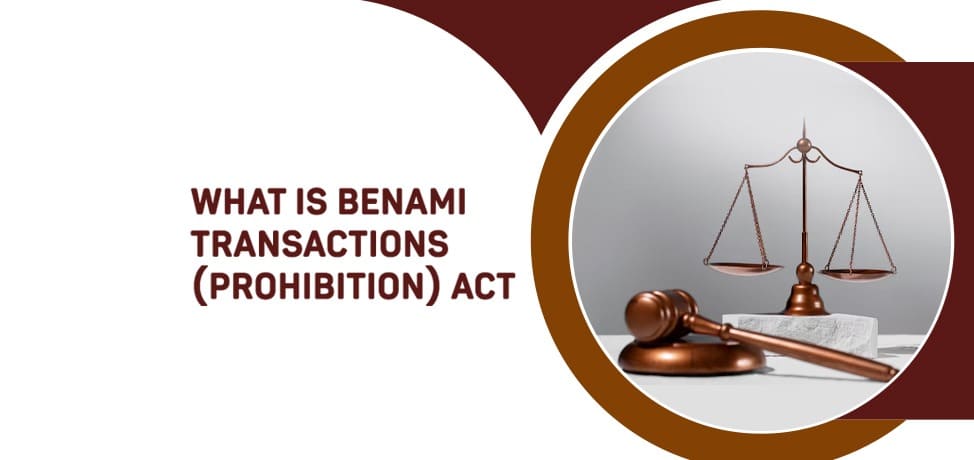
The term “Benami Transactions (Prohibition) Act” refers to the right to recover the property that held Benami, or against the actual owner of the property. The bill was first introduced in 2015 in the Lok Sabha by the Minister of Finance, Mr. Arun Jaitley. The main aim of the
Benami Transactions (Prohibition) Act
is to amend a Benami transaction that doesn’t hold or transfer to an authentic person. The act confiscates Benami property and prevents the flow of Benami transactions. Under the Benami Transactions (Prohibition) Act, a body is authorised to conduct investigations regarding the Benami transactions, including initiating officers, approving authorities, administrators, and adjudicating authority. An initiating officer is free to issue a notice to the benamidar person and may pass an order to continue holding the property.
Delving into the article, you’ll get to know the complete information about the Benami Transactions (Prohibition) Act and how it prevents the flow of Benami transactions.
To understand the act deeply, it is necessary to understand the Benami transactions and the parties involved in them.
In a benami transaction, a property is held by one person, and consideration for the property is paid by another unauthorised person. This definition of transactions falls under the Benami transaction. A property in a benami transaction is carried out under a fictitious name. The person doing this transaction may be fictitious, or the person for whom transactions are held may be fictitious. Sometimes, it also happens that a property owner has no concrete information about the ownership of the property and ends up providing an untraceable or fictitious name. So, all unauthorised transactions that don't pose any concrete evidence or information fall under the Benami Transaction Act, and violating this act leads to heavy penalties.
Property: If any kind of property, whether it is movable or immovable, tangible or intangible, doesn’t have legal documents or instruments evidencing the right owner of the property, then the property may fall under the act of Benami transactions. Generally, these types of properties are registered to fictitious persons where legal documents are forbidden.
Benami Property: Any property that is subject to benami transactions is referred to as benami property. The transactions are done by an untraceable or fictitious person.
Benamidar: A fictitious person whose name is involved in the transactions of benami properties or holdings and includes a person who lends his or her name.
The definition of Benami transactions includes all transactions made under a fictitious name or where the owners are unaware of their ownership. So, to prevent the flow of benami transactions, the Benami Transactions (Prohibition) Act was amended. The act defines the transaction of any property that doesn’t indicate the actual ownership of the property. So, if you want to know detailed information about the act, you must visit CA. Manoj K. Pahwa . We at Fema Consultant provide all the details on the Benami Transactions (Prohibition) Act and help in solving all the transaction-related issues.